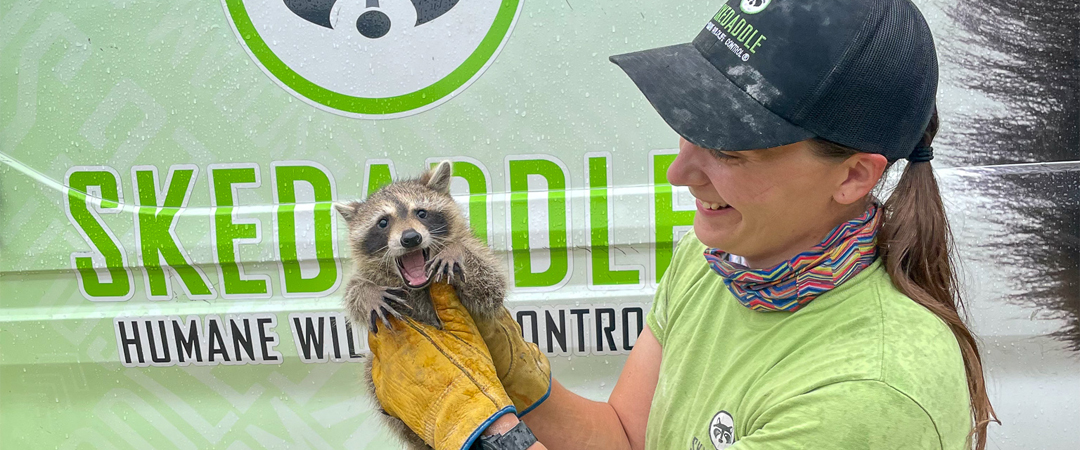Homeowners don’t like to have raccoons on or near their property because the animals are notoriously messy neighbours, often digging into trash and rummaging through vegetable gardens. Some people may entertain the idea of raccoon trapping to remove the animal from their property. Homeowners should never attempt to trap any wild animal. Proper and humane removal requires trained professionals.
The desire to use DIY removal strategies, such as trapping, is often the assumption of speed and reduced costs — neither belief is accurate. Hiring a professional service like Skedaddle Humane Wildlife Control is a fast, cost-effective solution, but even more, it is safe for the property owner and the animal.
Why You Should Never Trap Raccoons
Canada has laws to protect all types of wildlife, including wildlife. In most regions, trapping and relocating a raccoon is illegal without proper certification and licensure. Not only do DIY removal and trapping have potential legal ramifications, but it is also dangerous.
Raccoons can carry and transmit several diseases and infections to humans and pets. While rare, raccoons are known transmitters of rabies. Any close-quarters trap and removal situation creates a risk of bites and scratches that can lead to injury, illness, and possible death.
Raccoons are wild animals and should be treated with respect. Do not approach the animals or try to feed or lure them into a trap. Raccoons will defend themselves if they feel cornered or threatened. Also, if a homeowner successfully traps a raccoon and relocates it, they may inadvertently cause the abandonment of the animal’s pups, resulting in starvation and death.
Skedaddle Humane Wildlife Control has the proper paperwork and experience to legally and responsibly handle raccoon removal in York. The service’s technicians have the tools and training to minimize safety risks and ensure the well-being of the animal and its potential offspring.
Racoon Attractants: Why Raccoons Come to Your Property
You can avoid needing professional raccoon removal by removing items that may attract raccoons to your property. Like most living things, raccoons need food, water, and shelter. Raccoons are omnivorous and opportunistic eaters, meaning they will eat almost anything. Still, the animal’s preferred diet comprises fleshy fruits, grains, nuts, invertebrates, rodents, birds, young rabbits, fish, and carrion (dead animals).
Properties with fruit trees, vegetable gardens, pets, or problematic insect populations attract raccoons. Also, if you leave trash out uncovered and unprotected, raccoons and other foragers may come searching for anything edible.
Besides food, raccoons need shelter. They may find decent den sites under sheds and decks or inside crawlspaces, hollow trees, and stumps.
Racoon Prevention: How To Keep Raccoons Off Your Property
If you want to know how to get rid of raccoons naturally or prevent them from entering your property, you have a few options. First, install motion-activated yard lights. Raccoons are nocturnal and prefer the dark. Second, install a privacy fence; while raccoons can climb and burrow, if they do not smell anything of interest from your yard, they may avoid it. Third, put garbage in sealed cans and store the cans inside a closed garage or locked storage shed. Fourth, treat your yard for insects. Finally, keep pet food indoors in sealed containers and do not feed pets outside.
Humane Raccoon Removal Services From Skedaddle
Raccoon trapping is not an appropriate strategy for DIYers. In fact, no wildlife control techniques should involve inexperienced people. Only professional wildlife technicians are qualified to remove wild animals without risk to homeowners and animals. Contact Skedaddle Humane Wildlife Control if you suspect raccoon activity on your property or know an animal is nesting in your house.



